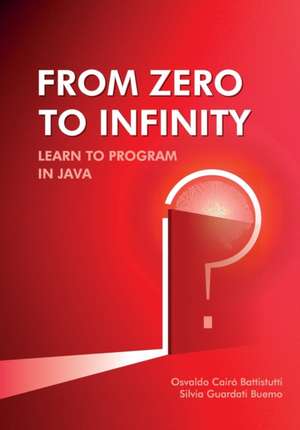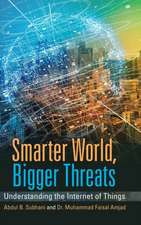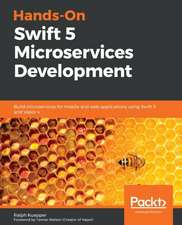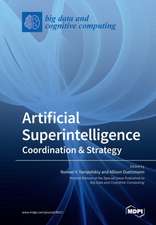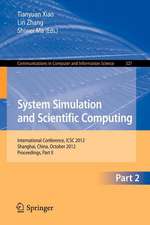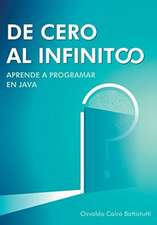From Zero to Infinity. Learn to Program in Java
Autor Osvaldo Cairó Battistutti, Silvia Guardati Buemoen Limba Engleză Paperback – 19 iun 2020
Preț: 176.72 lei
Preț vechi: 220.89 lei
-20% Nou
Puncte Express: 265
Preț estimativ în valută:
33.82€ • 36.72$ • 28.41£
33.82€ • 36.72$ • 28.41£
Carte disponibilă
Livrare economică 01-15 aprilie
Preluare comenzi: 021 569.72.76
Specificații
ISBN-13: 9789878647999
ISBN-10: 9878647994
Pagini: 244
Dimensiuni: 178 x 254 x 16 mm
Greutate: 0.69 kg
Editura: Cairó, Osvaldo Gabriel
ISBN-10: 9878647994
Pagini: 244
Dimensiuni: 178 x 254 x 16 mm
Greutate: 0.69 kg
Editura: Cairó, Osvaldo Gabriel
